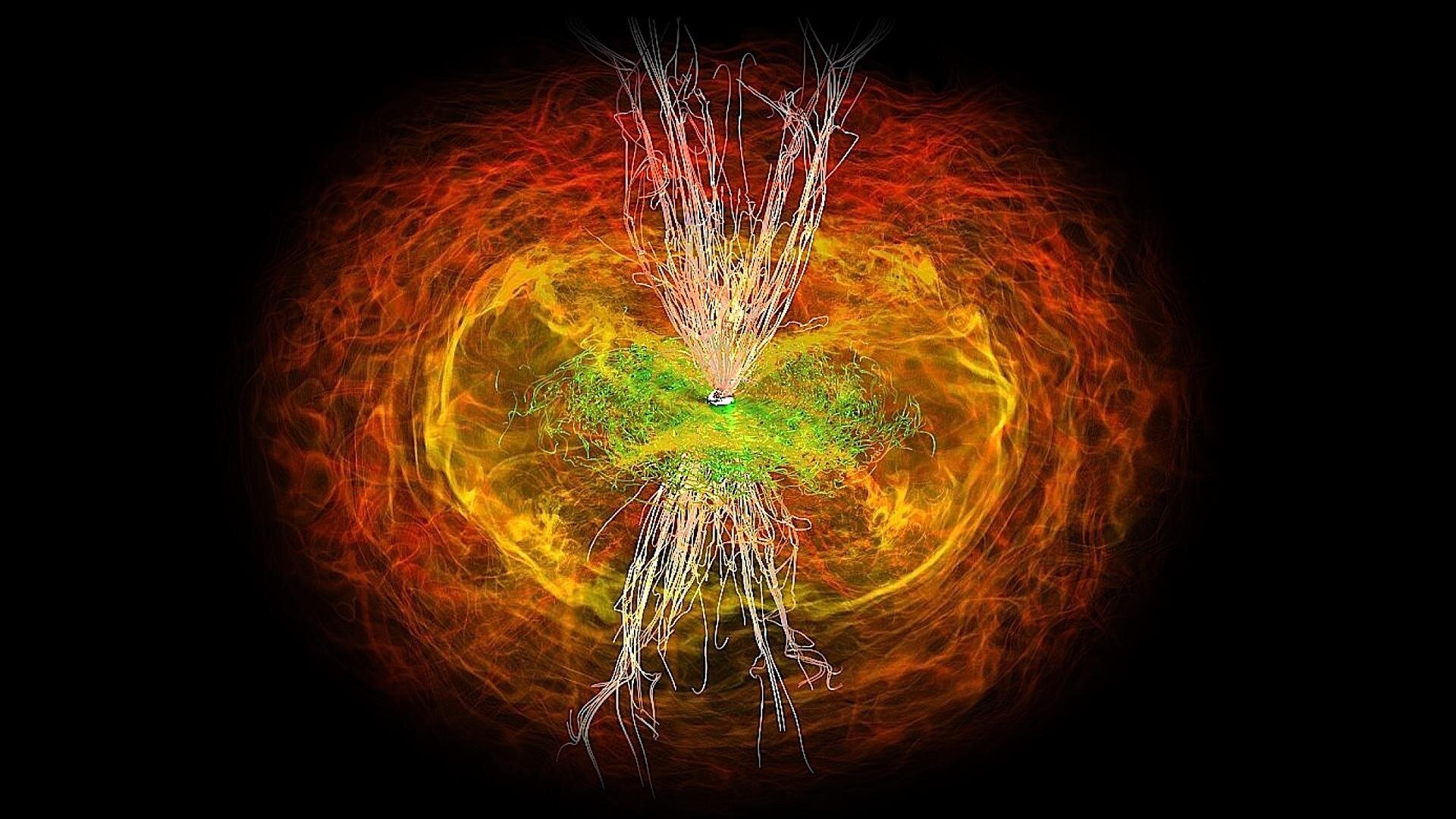
Andrey Feldman
Andrey got his B.Sc. and M.Sc. degrees in elementary particle physics from Novosibirsk State University in Russia, and a Ph.D. in string theory from the Weizmann Institute of Science in Israel. He works as a science writer, specializing in physics, space, and technology. His articles have been published in AdvancedScienceNews, PhysicsWorld, Science, and other outlets.
Latest articles by Andrey Feldman
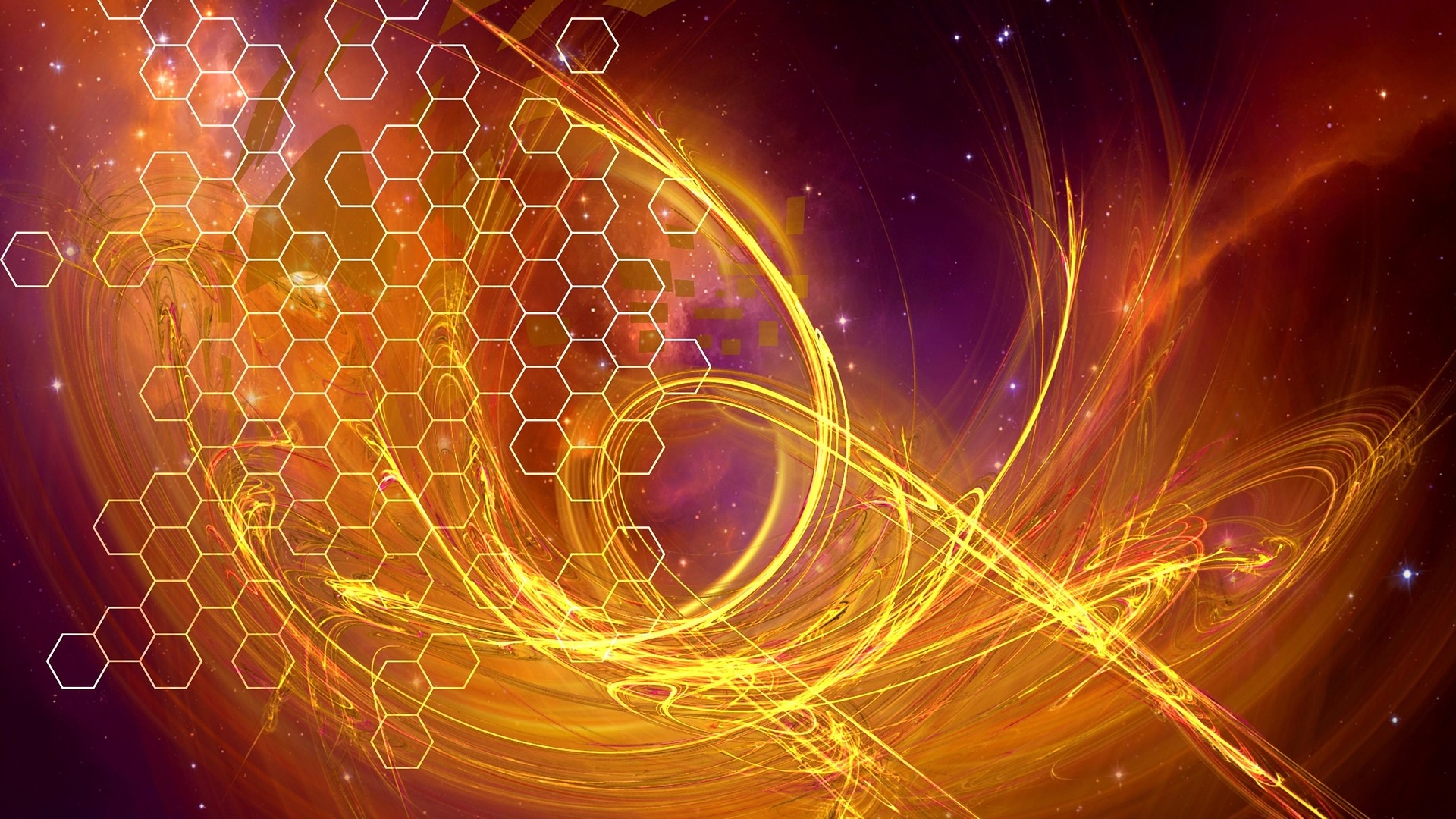
Scientists claim to find 'first observational evidence supporting string theory,' which could finally reveal the nature of dark energy
By Andrey Feldman published
Physicists have proposed a new model of space-time that may provide the 'first observational evidence supporting string theory,' a new preprint suggests.
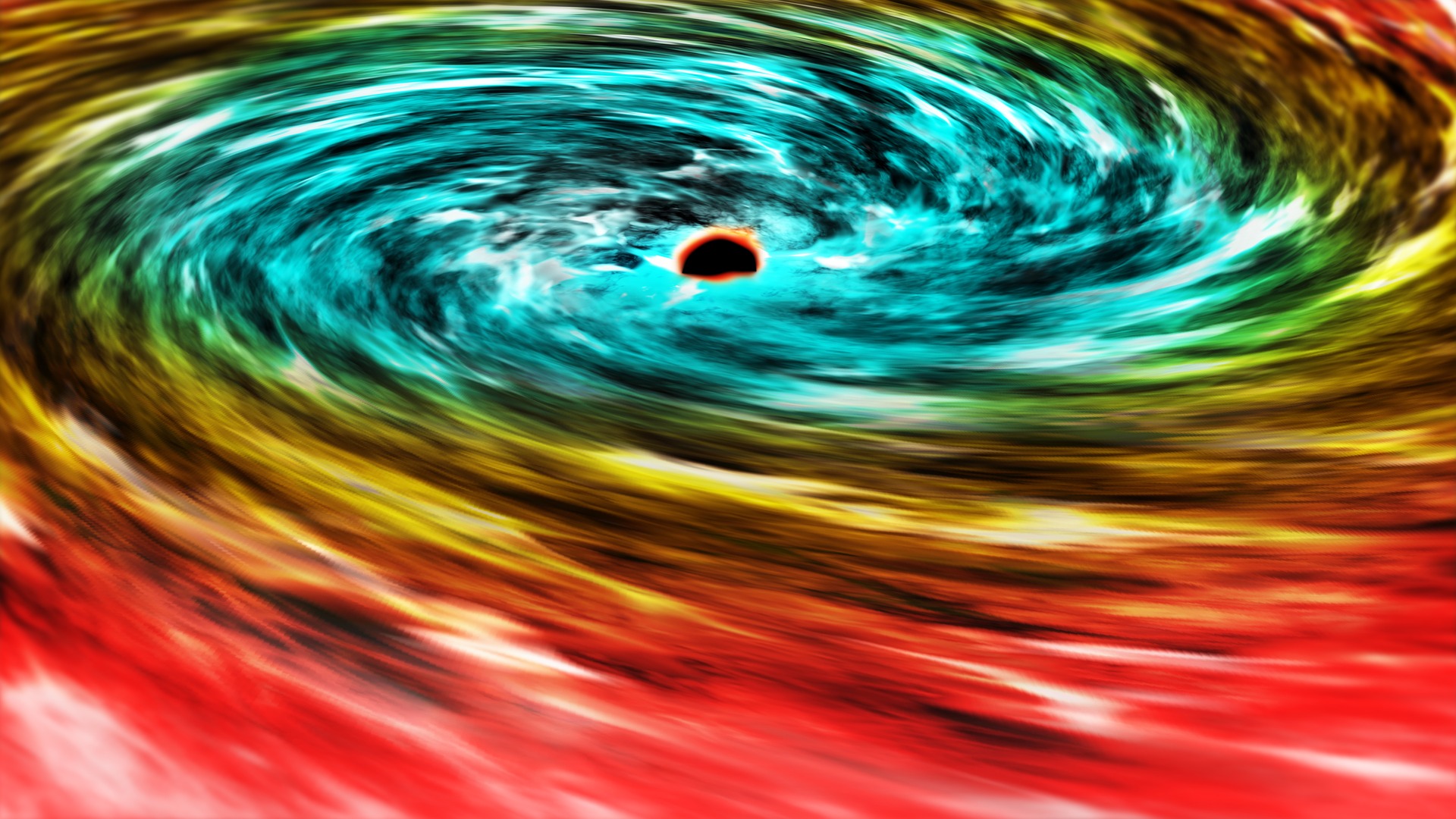
Stephen Hawking's black hole theory has big implications for the shape of the universe, new study claims
By Andrey Feldman published
Elusive black hole radiation predicted by Stephen Hawking may have influenced the way the universe took shape after the Big Bang, new research suggests.
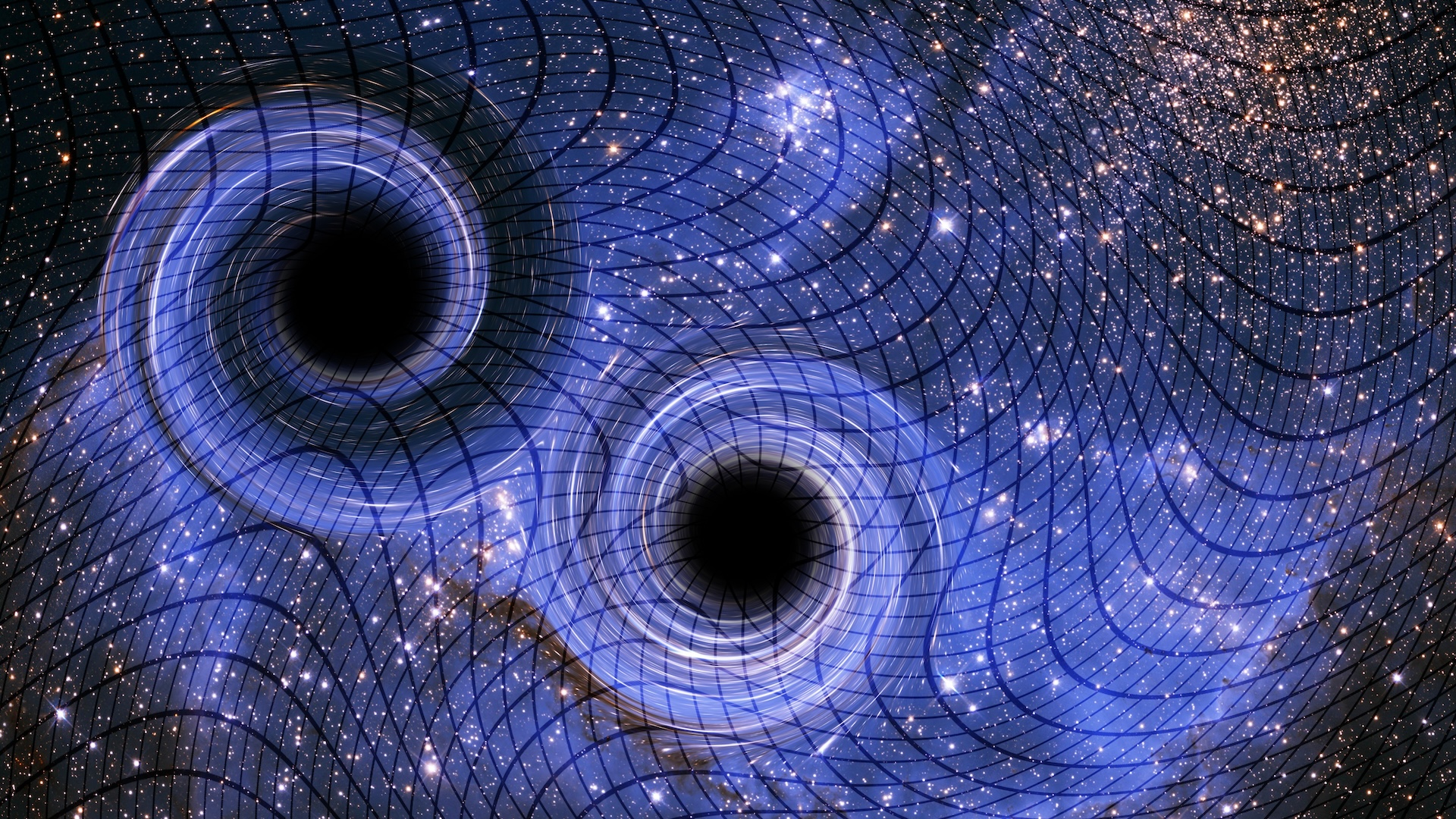
Unproven Einstein theory of 'gravitational memory' may be real after all, new study hints
By Andrey Feldman published
Einstein's theory of general relativity suggests that the "memory" of ancient events, such as black hole mergers, may be etched into the fabric of space-time by gravitational waves. New research shows how this theory of gravitational memory could finally be proven.
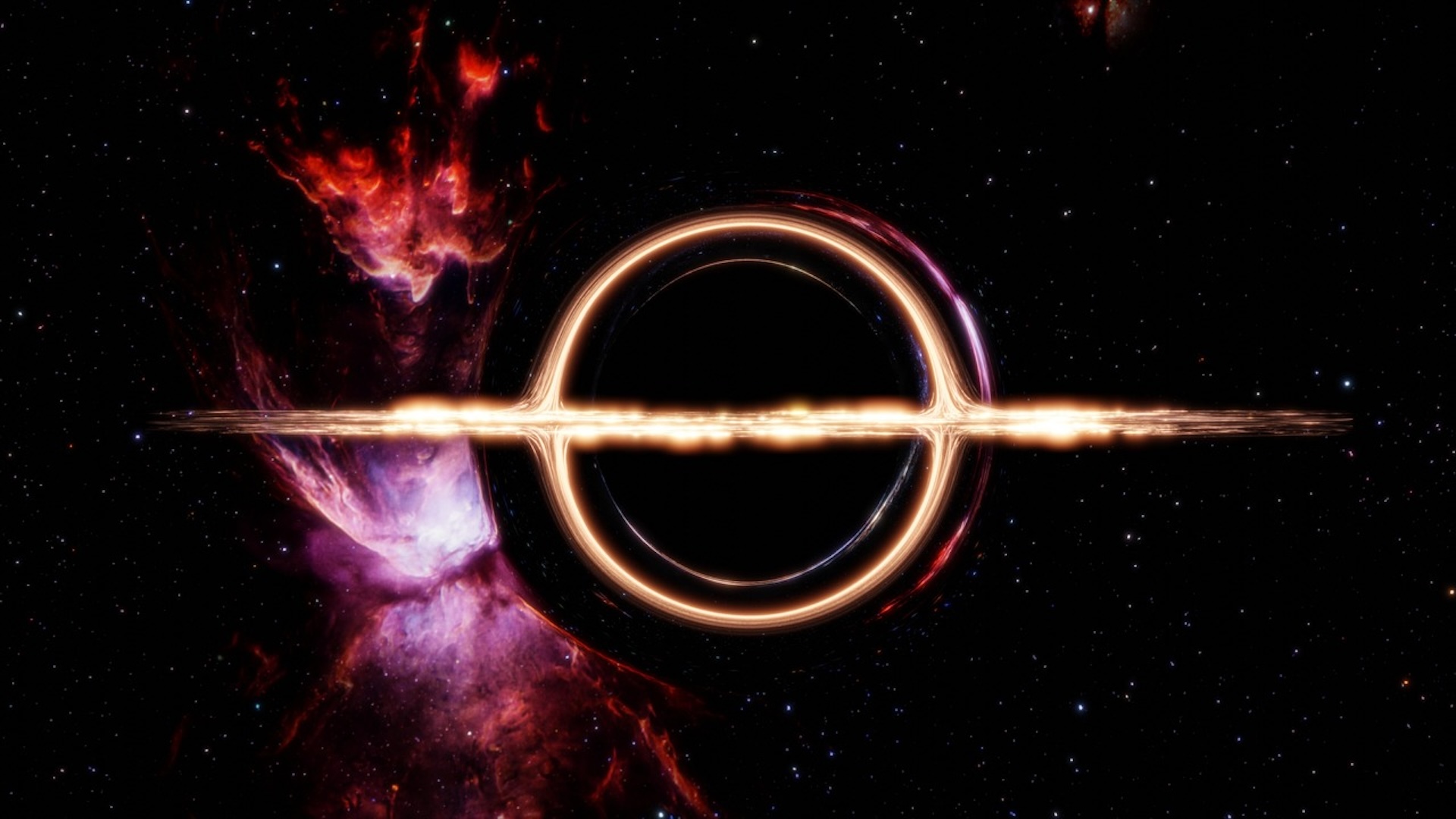
'Einstein's equations need to be refined': Tweaks to general relativity could finally explain what lies at the heart of a black hole
By Andrey Feldman published
Black hole singularities should not exist, according to theories of quantum mechanics. New tweaks to Einstein's equations of general relativity could finally do away with them, and explain what truly lies at the heart of a black hole.
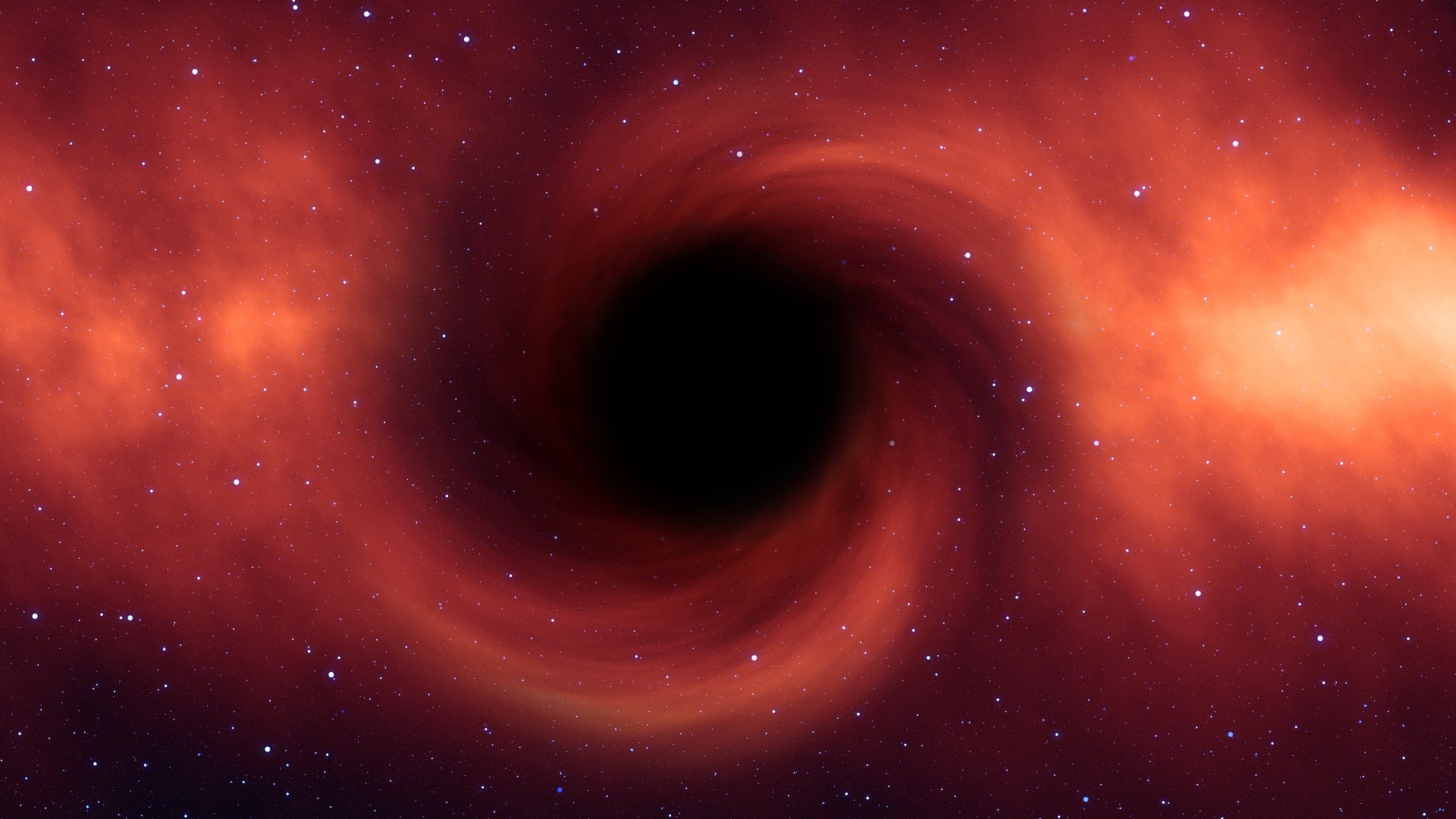
'Impossible' black holes detected by James Webb telescope may finally have an explanation — if this ultra-rare form of matter exists
By Andrey Feldman published
Observations from the James Webb Space Telescope reveal monster black holes in the early universe that seem to have grown too big, too fast. New research points to a strange form of dark matter as a possible culprit.
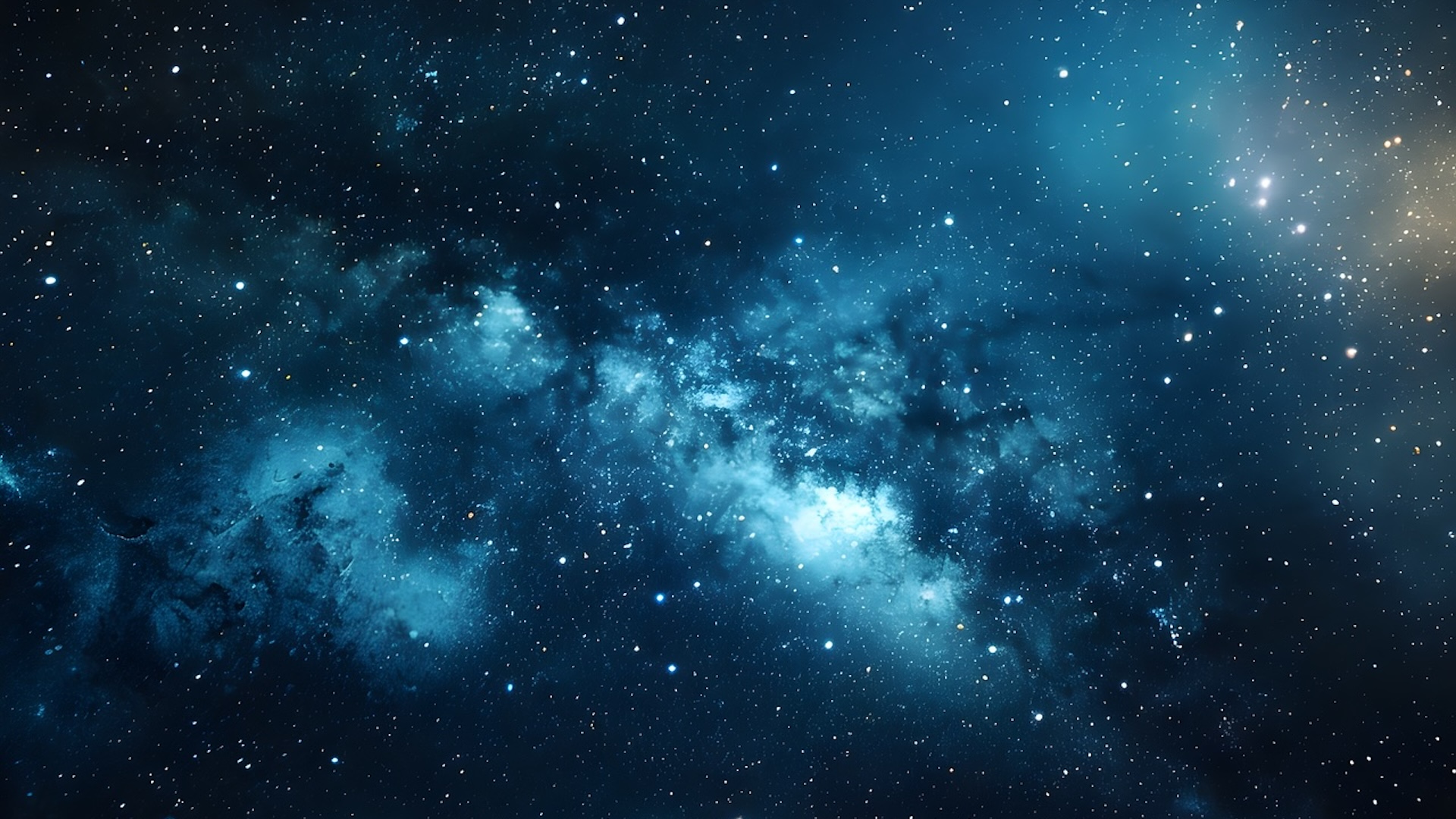
Cosmic voids may explain the universe's acceleration without dark energy
By Andrey Feldman published
New research suggests that dark energy isn't needed to explain the acceleration in the expansion of the universe — instead suggesting giant voids in space are creating an illusion.
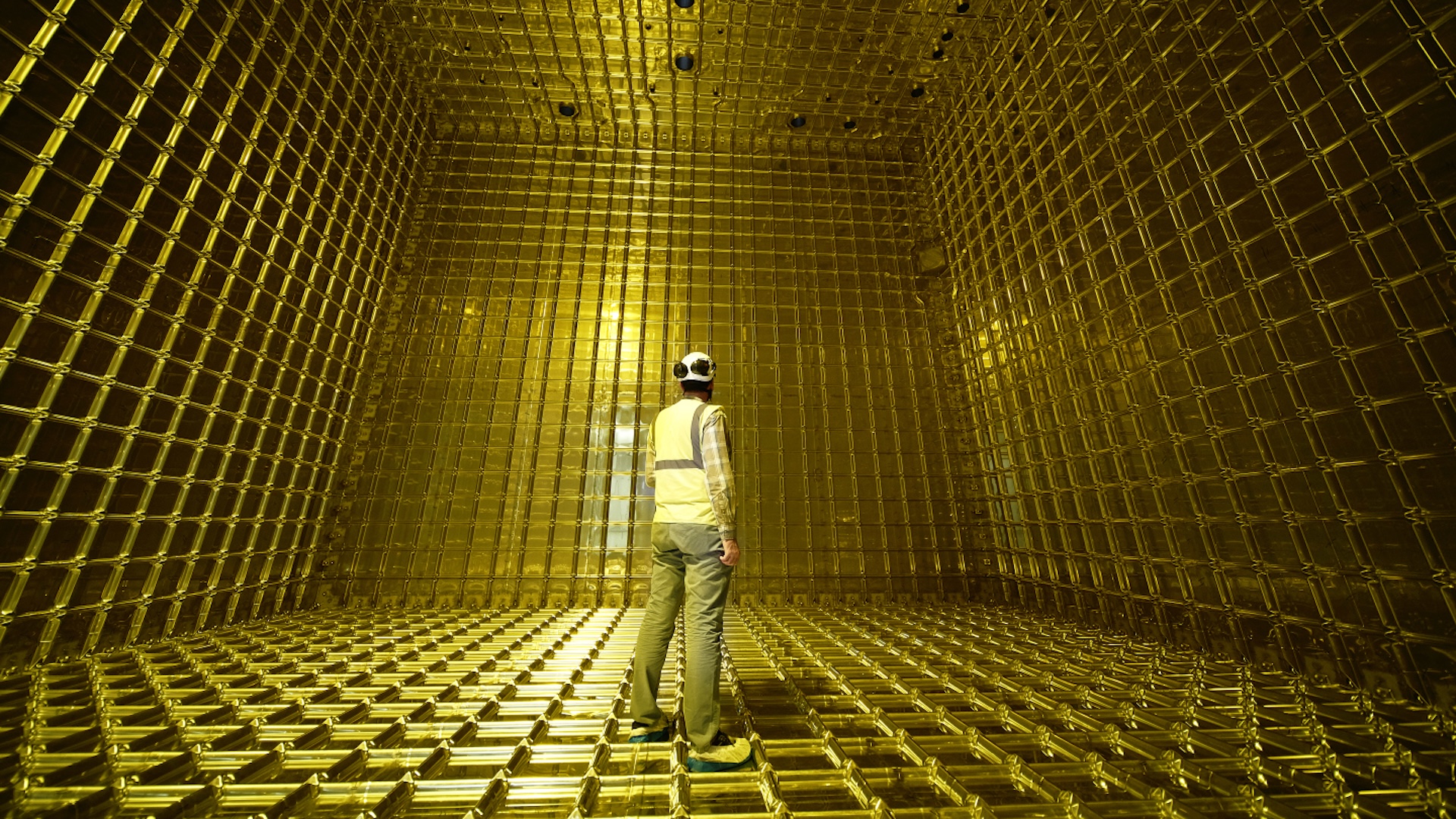
800-mile-long 'DUNE' experiment could reveal the hidden dimensions of the universe
By Andrey Feldman published
A new underground facility called DUNE, which will accelerate particles for 800 miles between Illinois and South Dakota, could reveal the hidden dimensions of the universe, new research suggests.

Physicist claims to have solved the infamous 'grandfather paradox,' making time travel (theoretically) possible
By Andrey Feldman published
The grandfather paradox is just one of the thorny logical problems that arise with the concept of time travel. But one physicist says he has resolved them.
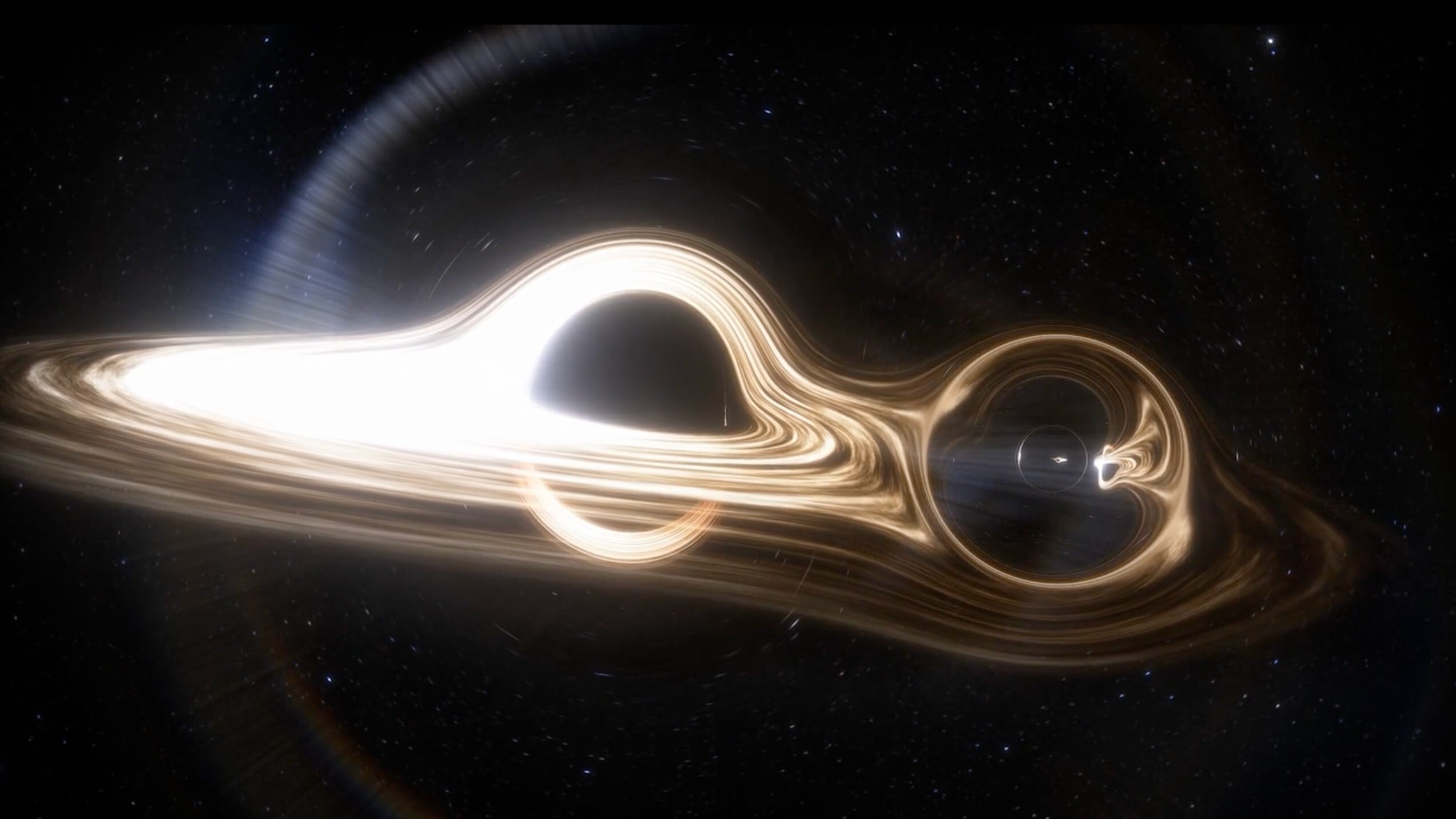
Scientists followed a mysterious signal — and found 2 black holes gorging on something like never before
By Andrey Feldman published
While investigating a mysterious radiation signal unlike any seen before, astronomers may have uncovered a rare pair of binary supermassive black holes with a truly monstrous appetite.
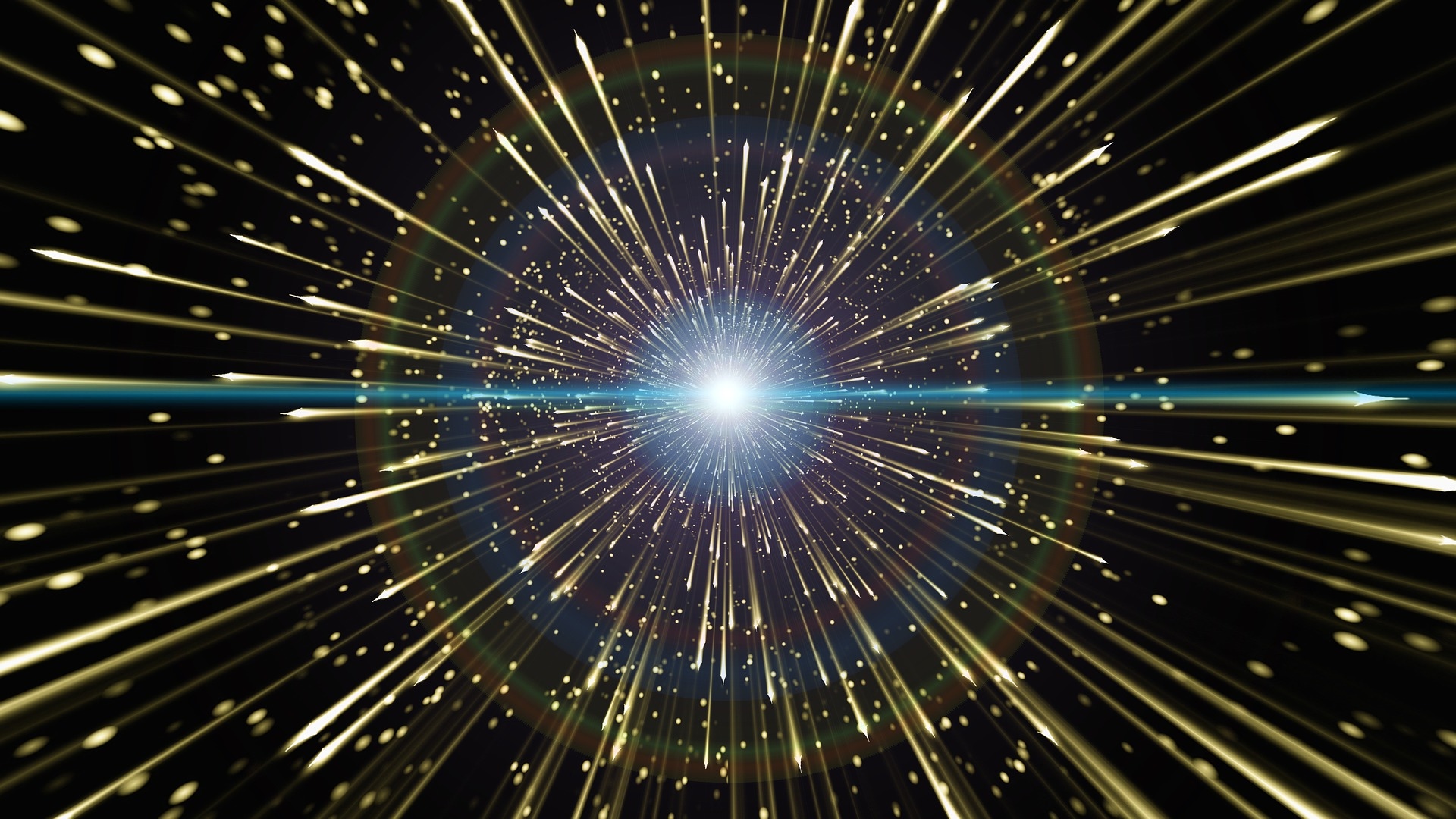
'Hawking radiation' may be erasing black holes. Watching it happen could reveal new physics.
By Andrey Feldman published
Primordial black holes may be exploding throughout the universe. If we can catch them in the act, it could pave the way to new physics, a study suggests.
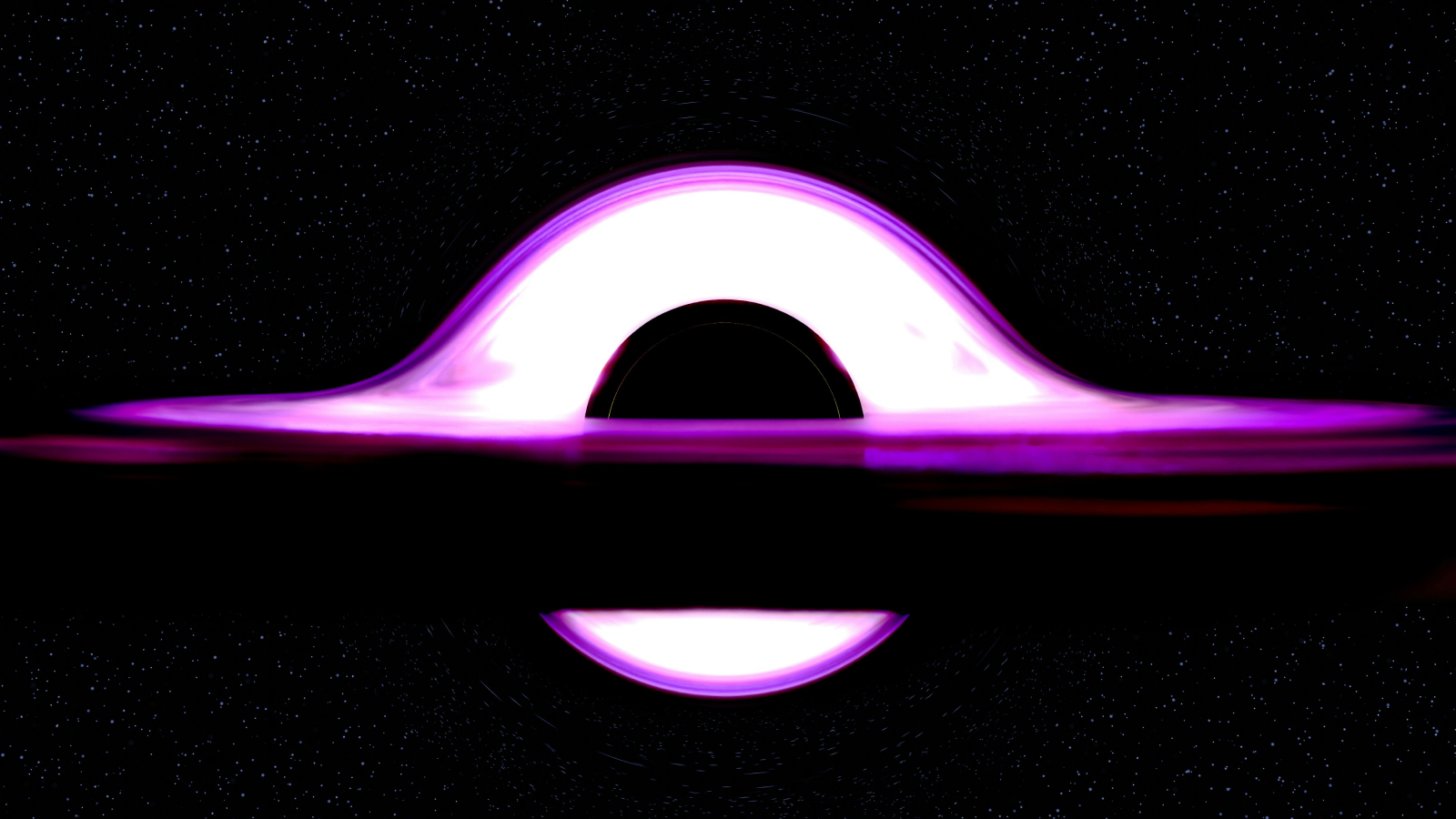
Stephen Hawking's black hole radiation paradox could finally be solved — if black holes aren't what they seem
By Andrey Feldman published
New research suggests that black holes may actually be "frozen stars," bizarre quantum objects that lack a singularity and an event horizon, potentially solving some of the biggest paradoxes in black hole physics.
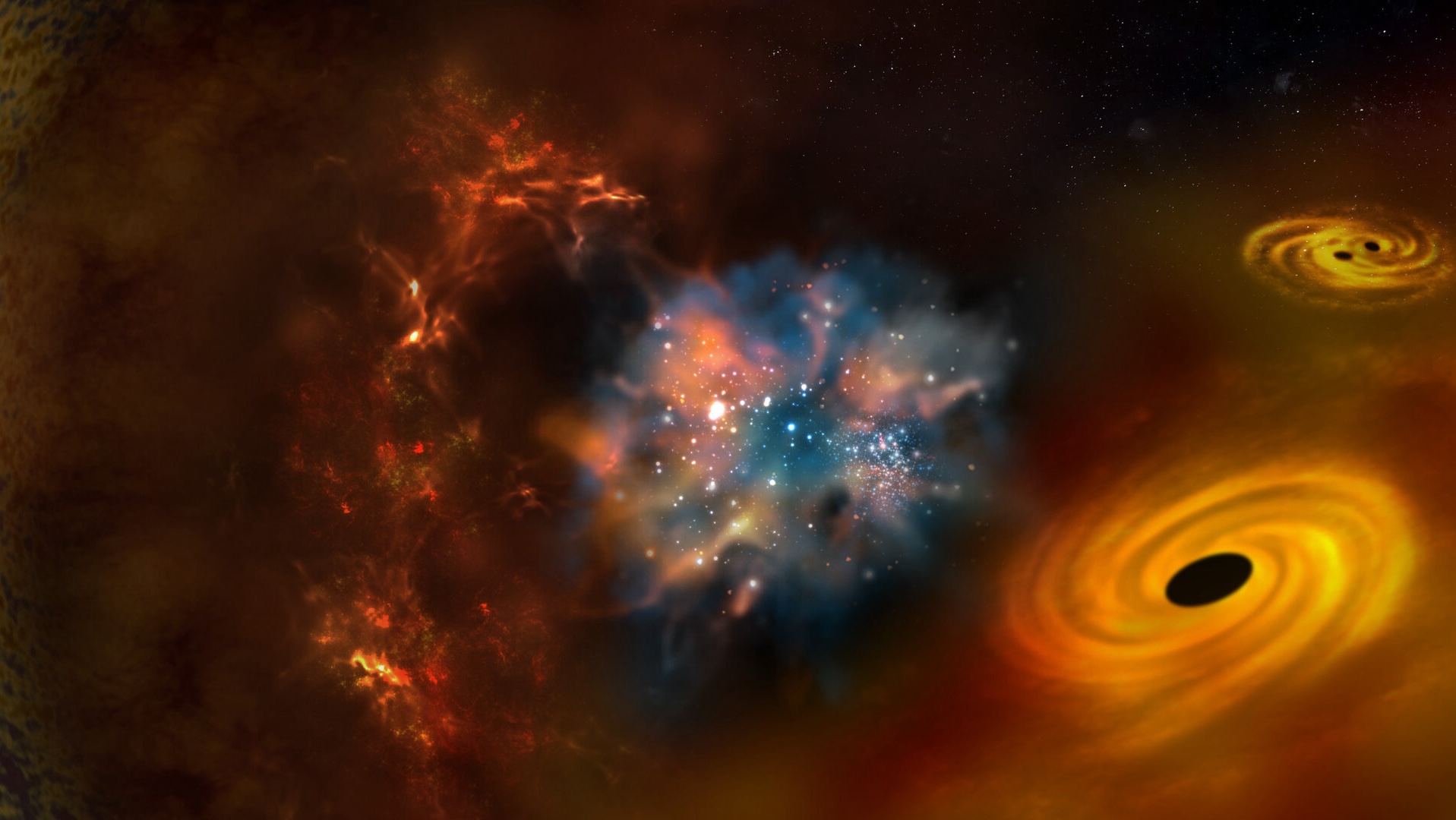
The universe had a secret life before the Big Bang, new study hints
By Andrey Feldman published
The secrets of black holes and dark matter could lie before the Big Bang, a new study of "bouncing" cosmology hints.
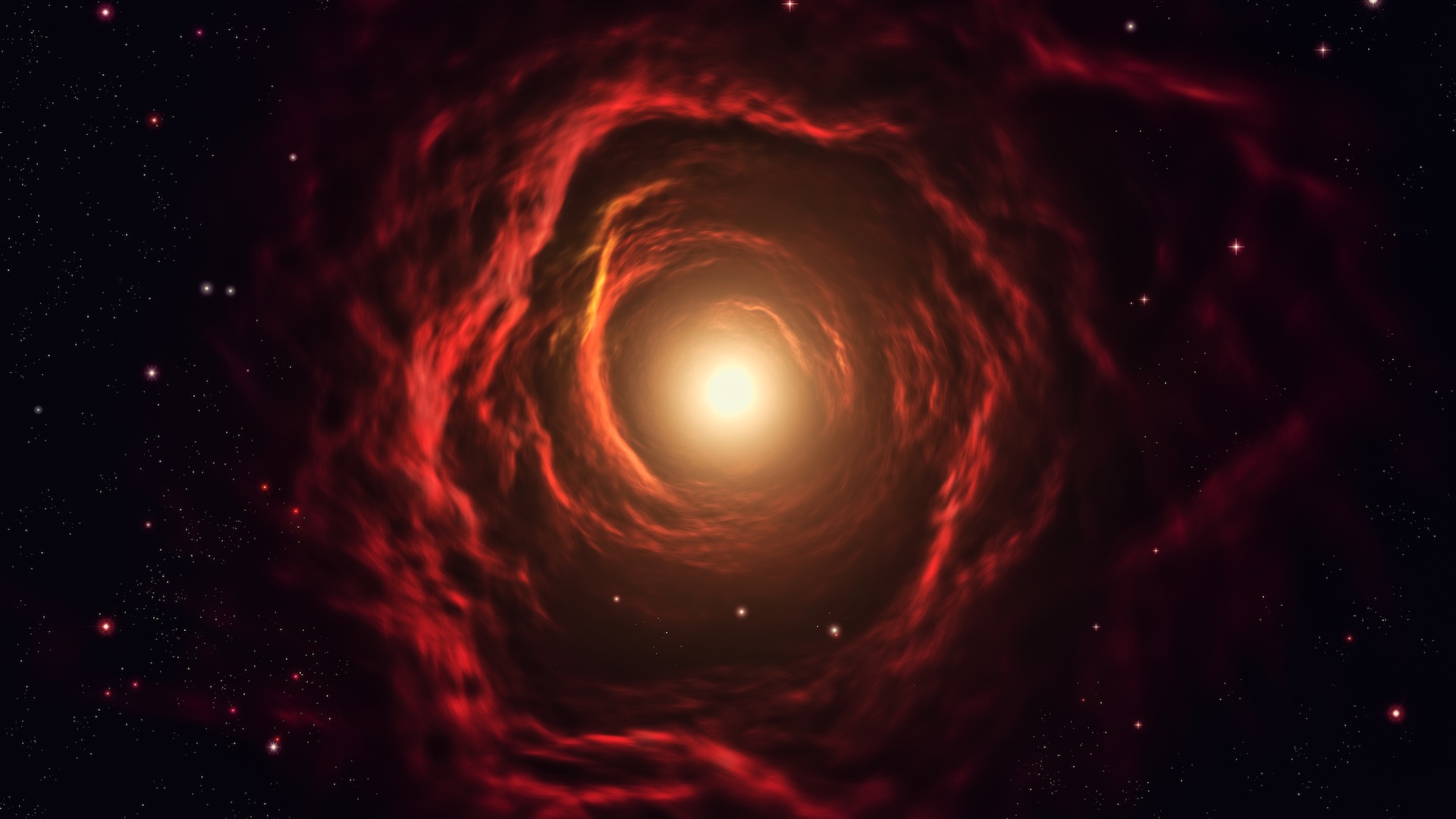
Huge cosmological mystery could be solved by wormholes, new study argues
By Andrey Feldman published
The universe is expanding at an ever accelerating rate — and tiny wormholes that bore through the fabric of space-time might be to blame, a new study proposes.

Antimatter detected on International Space Station could reveal new physics
By Andrey Feldman published
Eight years ago, the International Space Station detected weird antimatter particles that challenge our entire understanding of physics. Now, researchers have proposed that mysterious cosmic "fireballs" could help explain the detection.
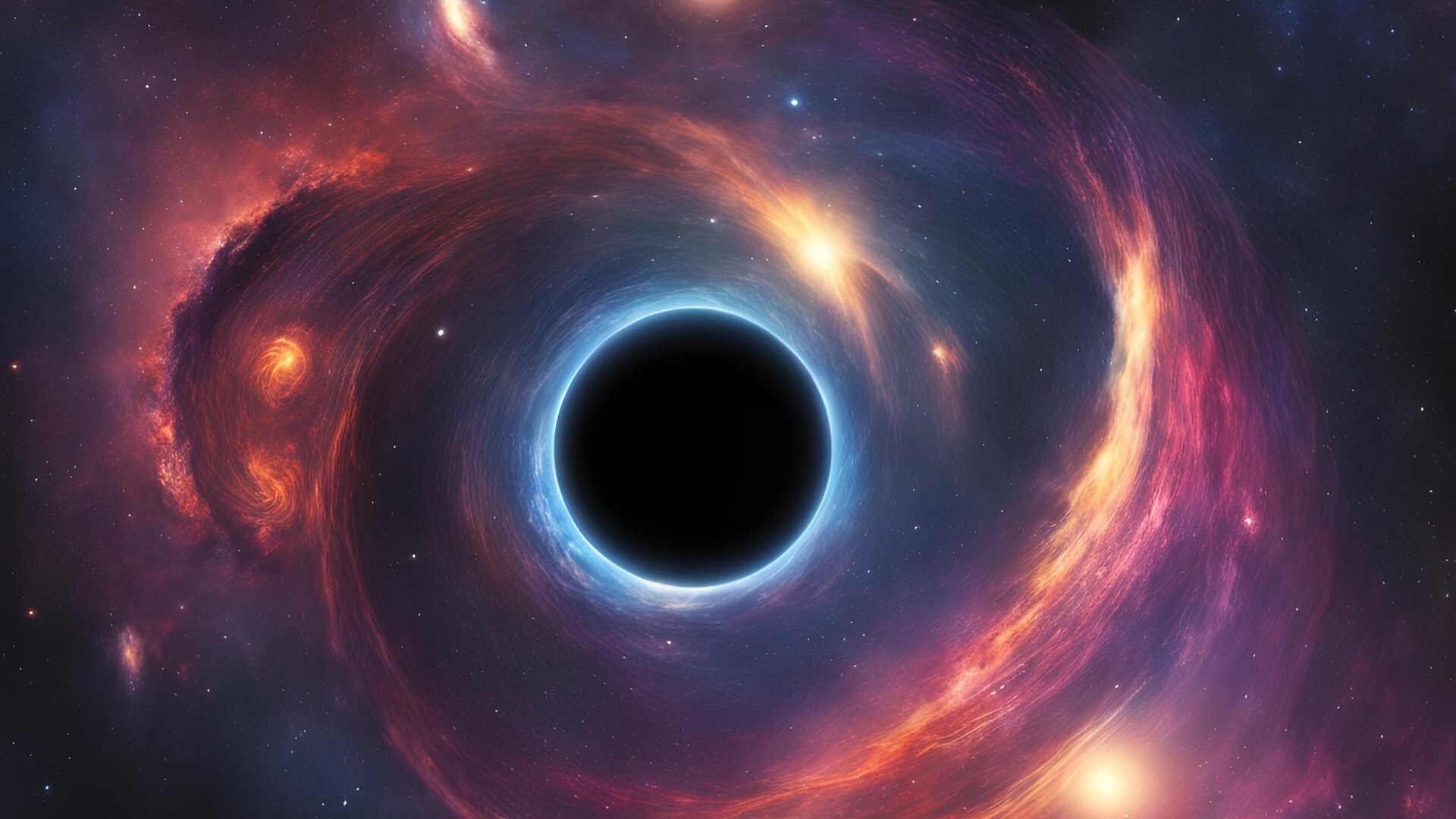
Study finds black holes made from light are impossible — challenging Einstein's theory of relativity
By Andrey Feldman published
New theoretical research finds that it's impossible to form a black hole with the energy of light particles alone, poking a hole in Einstein's theory of general relativity.
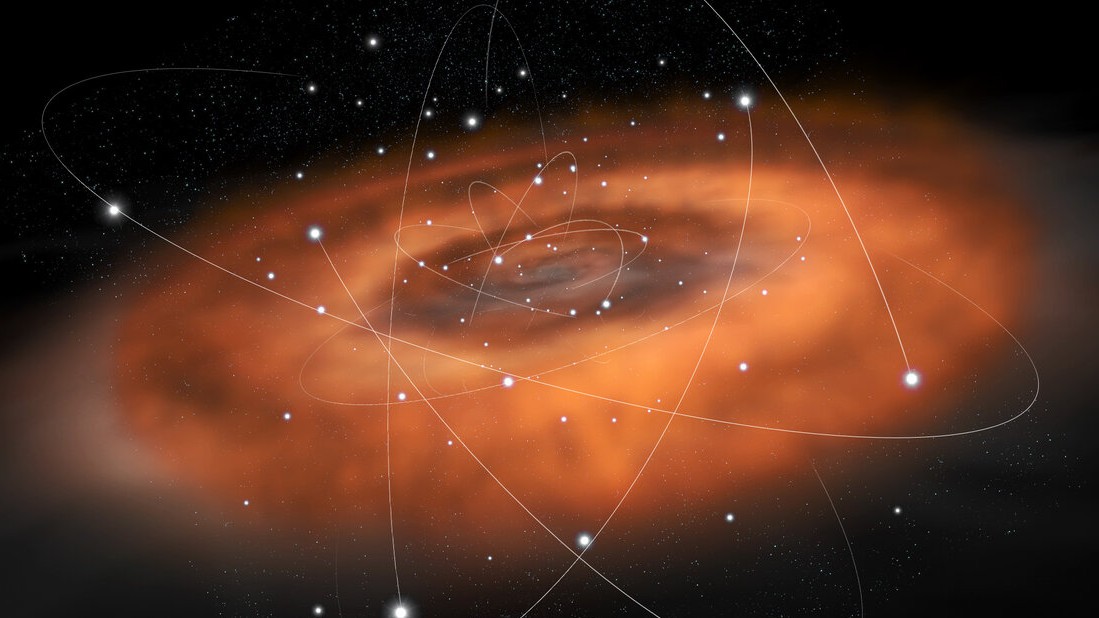
'Immortal' stars at the Milky Way's center may have found an endless energy source, study suggests
By Andrey Feldman published
Strange stars clustered near the Milky Way's center are much younger than theory predicts is possible. New research suggests their youth could actually be eternal — and fueled by annihilating dark matter.
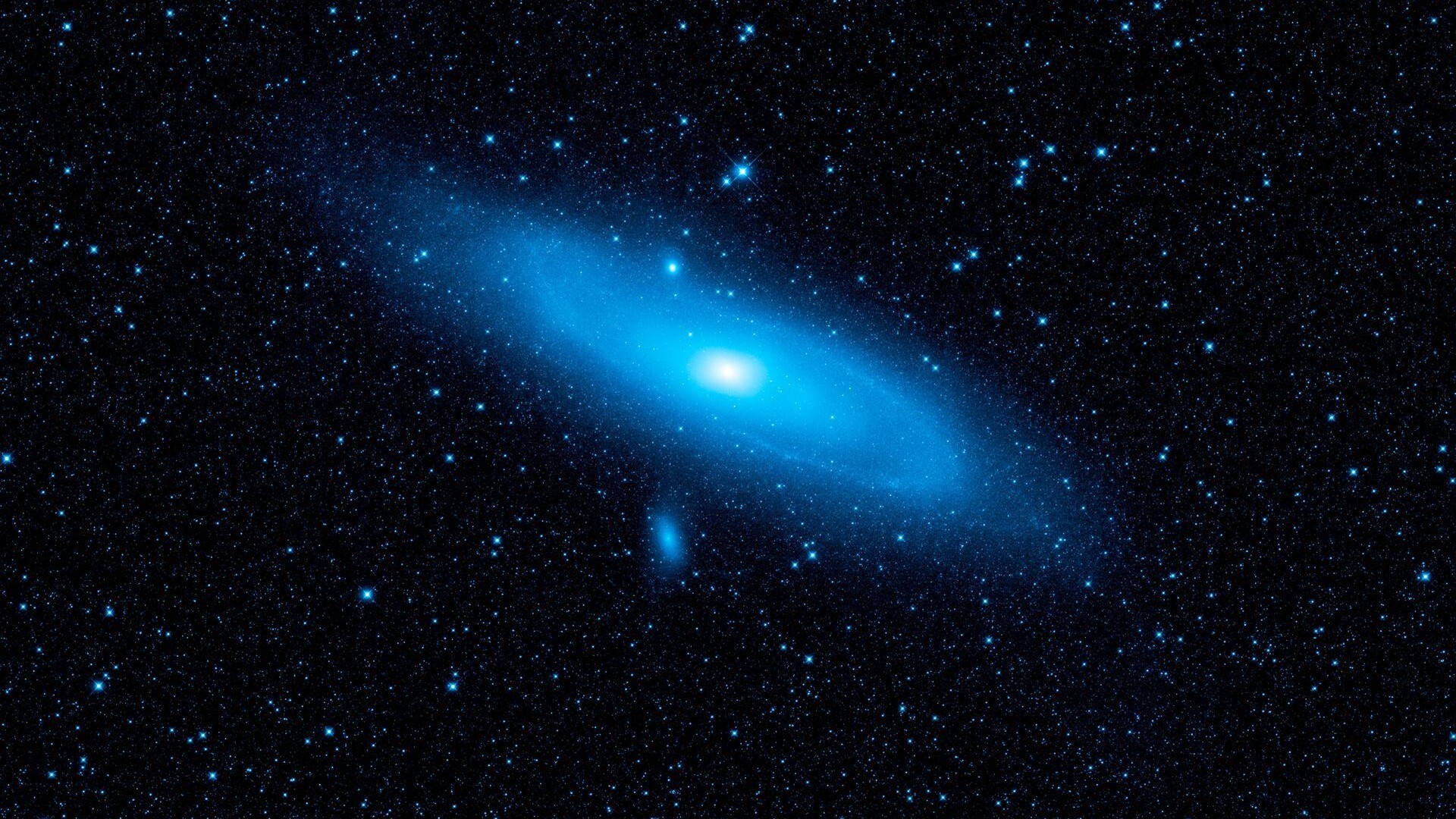
A new theory of quantum gravity could explain the biggest puzzle in cosmology, study suggests
By Andrey Feldman published
A new theory of quantum gravity, which attempts to unite quantum physics with Einstein's relativity, could help solve the puzzle of the universe's expansion, a theoretical paper suggests.
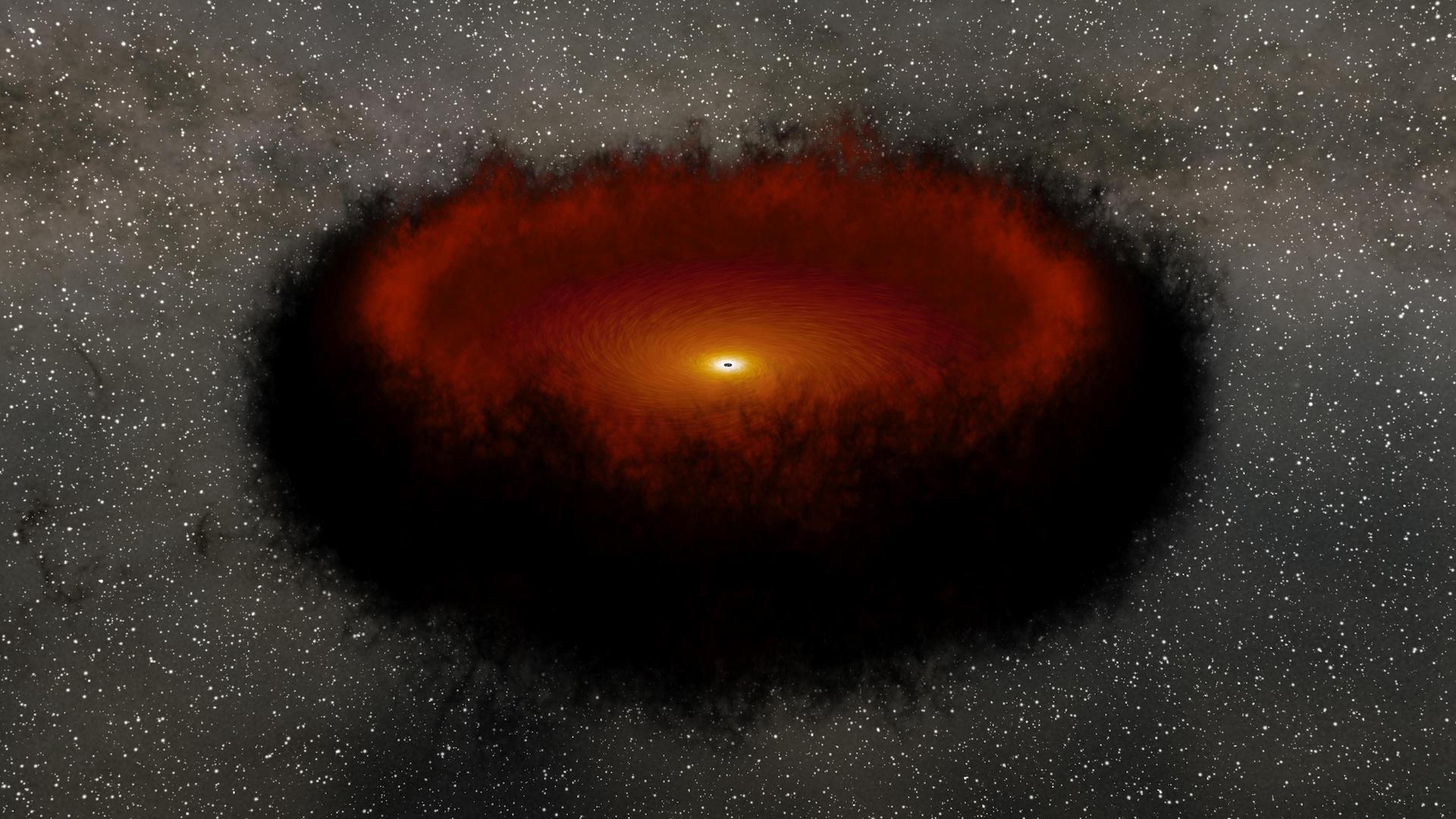
Black hole singularities defy physics. New research could finally do away with them.
By Andrey Feldman published
Black hole singularities defy the laws of physics. New research presents a bold solution to this puzzle: Black holes may actually be a theoretical type of star called a 'gravastar,' filled with universe-expanding dark energy.
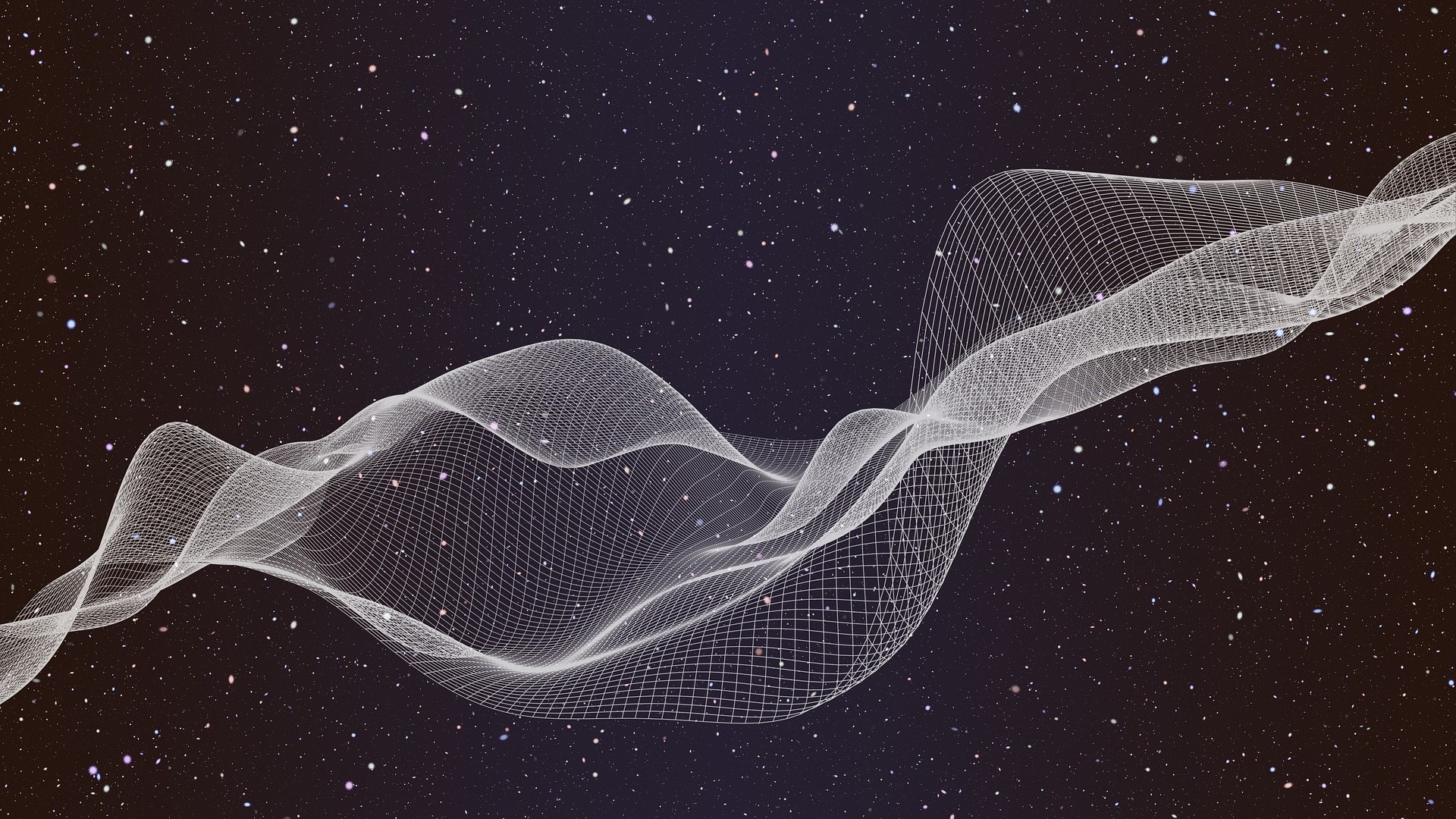
Tweak to Schrödinger's cat equation could unite Einstein's relativity and quantum mechanics, study hints
By Andrey Feldman published
Physicists have proposed modifications to the infamous Schrödinger's cat paradox that could help explain why quantum particles can exist in more than one state simultaneously, while large objects (like the universe) seemingly cannot.
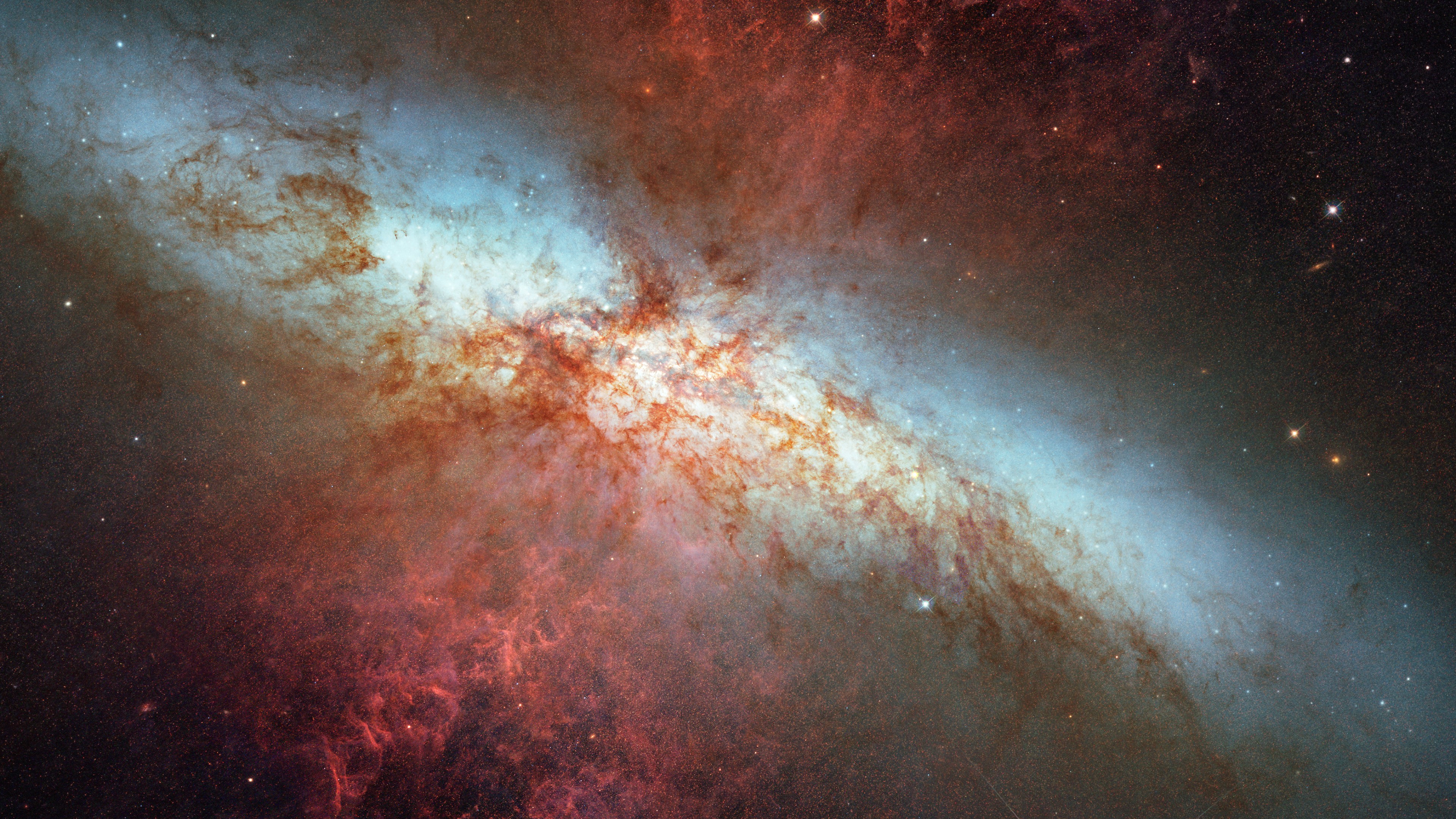
Mysterious 'unparticles' may be pushing the universe apart, new theoretical study suggests
By Andrey Feldman published
New theoretical research suggests that a mysterious form of matter called "unparticles" could be the driving force behind the expansion of the universe.
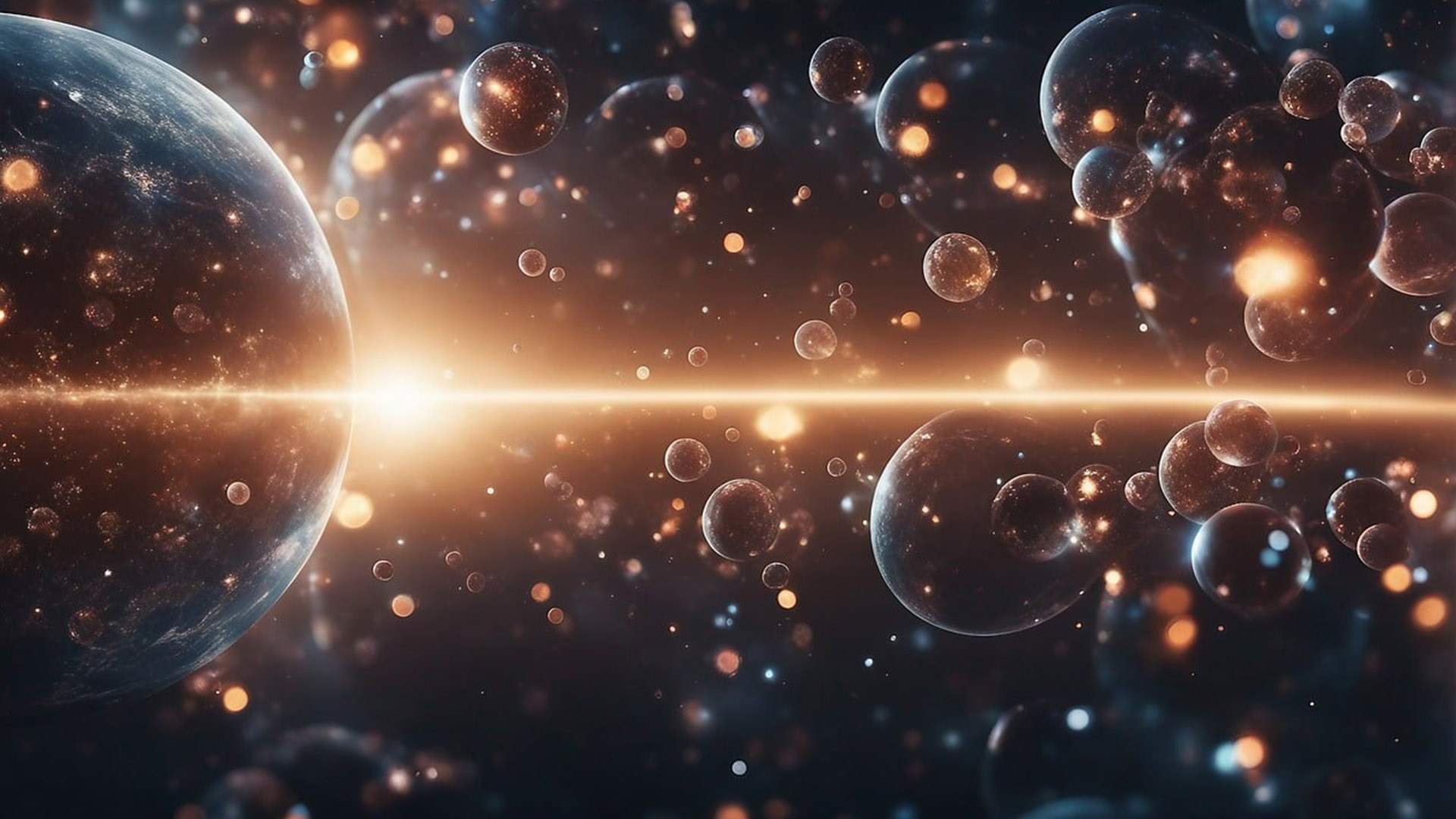
Our universe is merging with 'baby universes', causing it to expand, new theoretical study suggests
By Andrey Feldman published
The universe is expanding faster and faster, but not all scientists agree that dark energy is the cause. Perhaps, instead, our universe keeps colliding with and absorbing smaller 'baby universes,' a new theoretical study suggests.
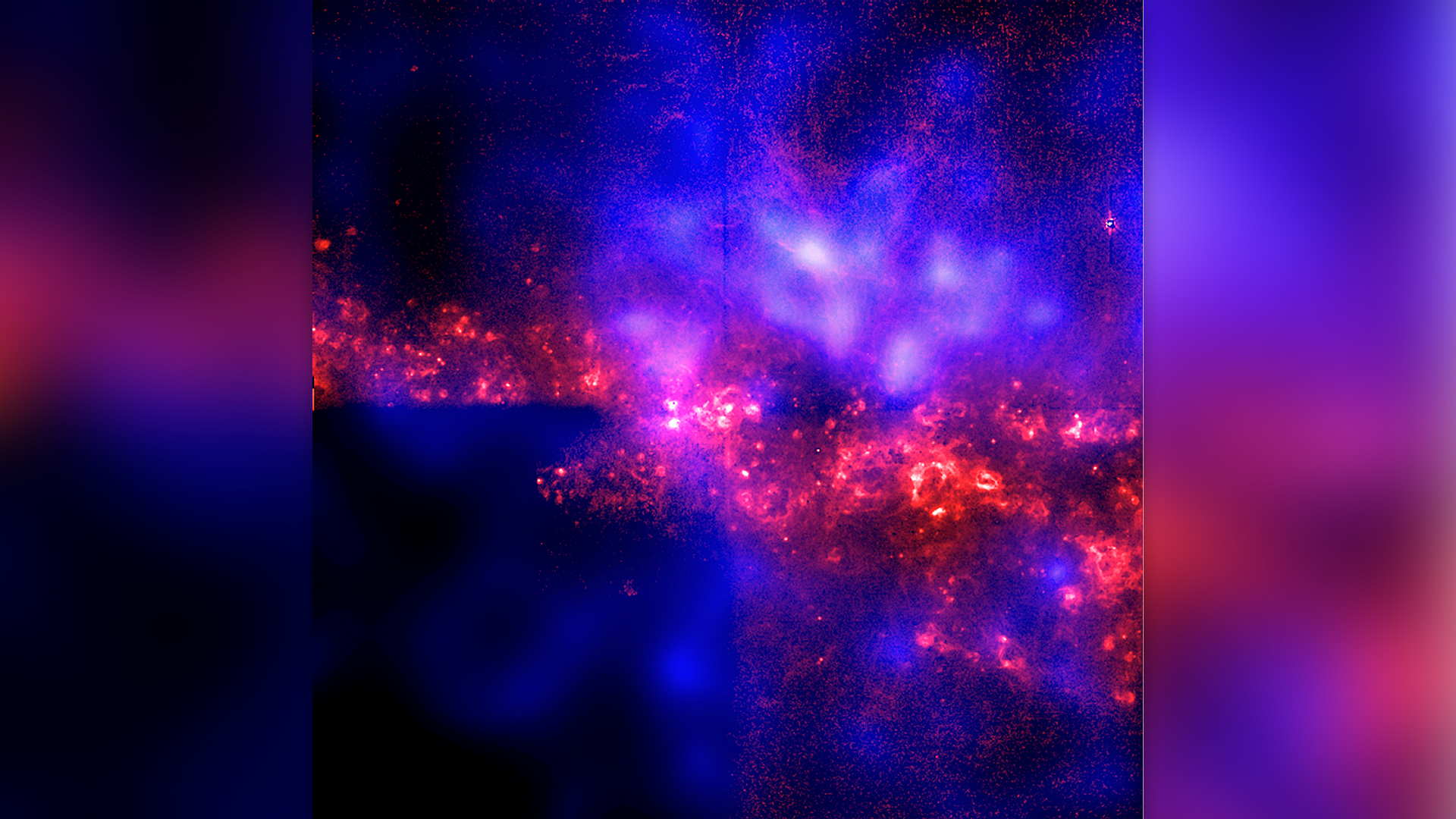
Dark matter could be gently wobbling space-time around us — and scientists may finally know how to detect it
By Andrey Feldman published
A new paper suggests we may finally be able to uncover the identity of dark matter using the same technology that detects ripples in space-time known as gravitational waves.
Sign up for the Live Science daily newsletter now
Get the world’s most fascinating discoveries delivered straight to your inbox.
